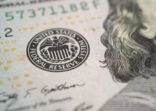Higher interest rates battered nearly all major asset classes in 2022 and while the effect was reduced in 2023, some investors are warning they will still send the global economy into a recession.
However, Vanguard – the world’s second largest asset manager – believes that the rise in interest rates is the “single best economic and financial development” of the past 20 years.
In its most recent 2024 outlook report, the asset manager said interest rates settling at higher levels than before the 2008 global financial crisis (GFC) marks the ushering of a “return to sound money”.
It expects interest rates to stay higher for longer than expected – which will be bode well for long-run bond returns, according to the report.
“Despite the potential for near-term volatility, we believe this rise in interest rates is the single best economic and financial development in 20 years for long-term investors,” it said.
The concept of “sound money” is closely associated with the Austrian School of Economics which argues that money should have limited supply, a market-determined value and be protected from government intervention.
Vanguard explained that the implications for higher rates “will be profound” as borrowing and savings behaviour is reset and capital is allocated “more judiciously”.
“Higher rates will force a reassessment of fiscal outlooks sooner rather than later,” the report said. “The vicious circle of rising deficits and higher interest rates will accelerate concerns about fiscal sustainability.”
“Vanguard’s research suggests the window for governments to act on this is closing fast—it is an issue that must be tackled by this generation, not the next,” it added.
“For well-diversified investors, the permanence of higher real interest rates is a welcome development. It provides a solid foundation for long-term risk-adjusted returns.”
Bonds are back
As such, the asset manager has made significant upward revisions to its return expectations for bonds.
It sees US bonds delivering a 4.8% to 5.8% annualised return over the next decade, versus 1.5% to 2.5% before the latest rate-hiking cycle began. It expects similar returns for international bonds (4.7% to 5.7%).
“If reinvested, the income component of bond returns at this level of rates will eventually more than offset the capital losses experienced over the last two years,” the report explained.
“By the end of the decade, bond portfolio values are expected to be higher than if rates had not increased in the first place.”
Although credit valuations appear “fair” for investment-grade bonds, they remain “relatively rich” for high-yield bonds, Vanguard said.
It added that a growing likelihood of recession and declining profit margins also skew the risks toward wider spreads.
Subdued performance by equities
When it comes to equities, the asset manager was less optimistic. It argued that stocks are overvalued given the higher rate environment.
“A higher-rate environment depresses asset price valuations across global markets while squeezing profit margins as corporations find it more expensive to issue and refinance debt,” it said.
It added that the equity market has “yet to fully reflect the implications of the return to sound money”, and thus downgraded its US equity return expectations to between 4.2% and 6.2% over the next decade.
However, it said that international equities in both developed markets and emerging markets look relatively more attractive, with annualised return expectations of 7% to 9% and 6.6% to 8.6% respectively over a 10-year period.
It attributed much of the outperformance of the last two years from US equity markets to valuation expansion and US dollar strength – both of which are “likely to reverse”.
















